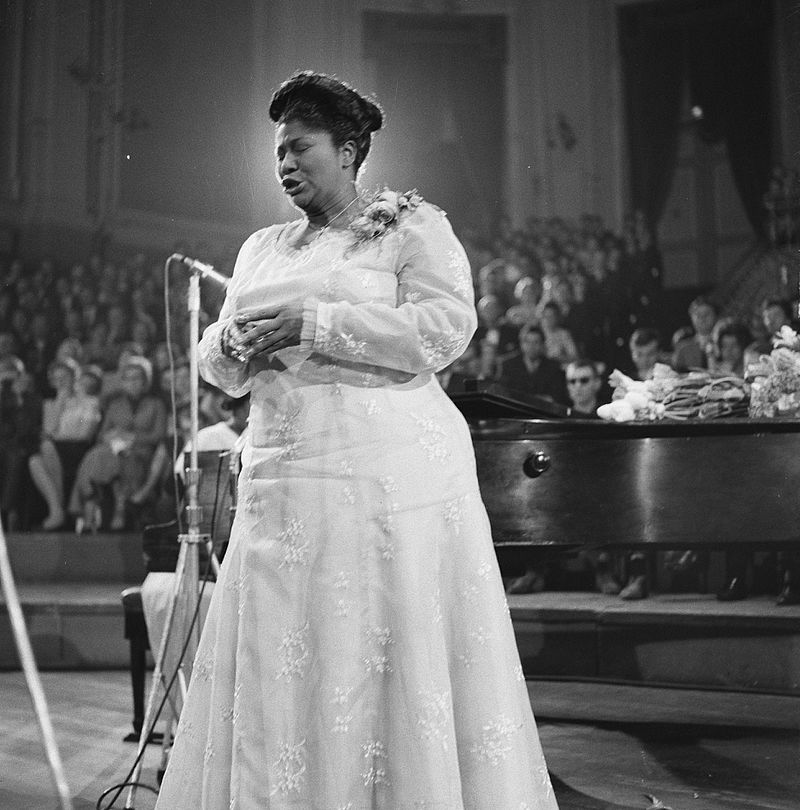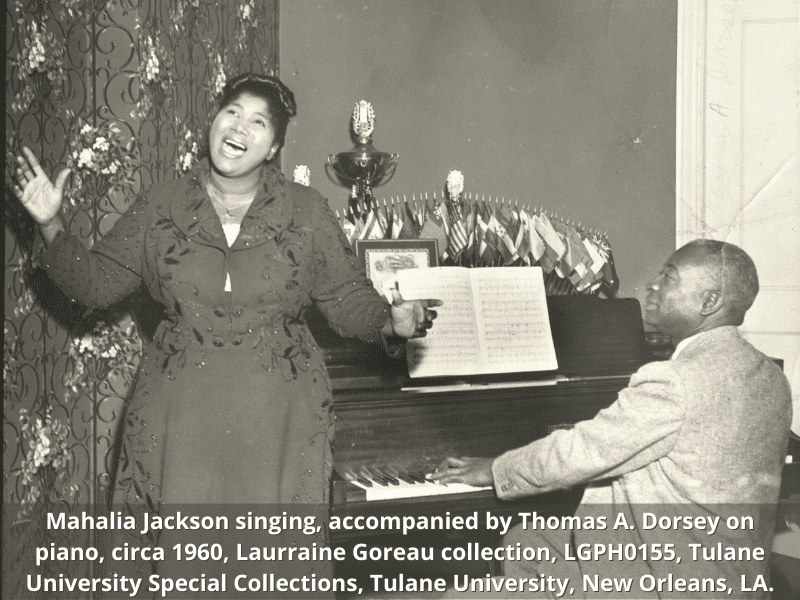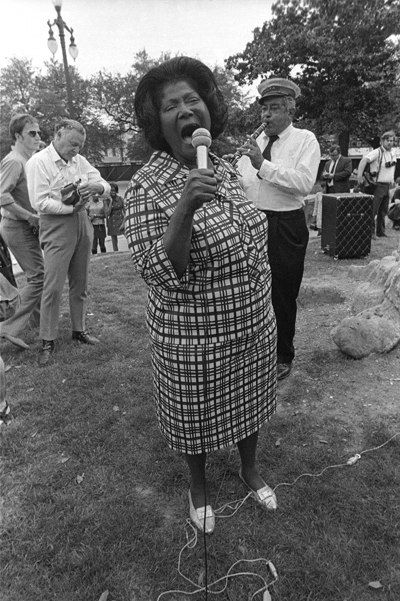Introduction
This post will examine the early life of Mahalia Jackson, her influences on music, and the legacy that she has left behind.
Early Life
Mahalia Jackson was born on October 11th, 1911 in New Orleans, Louisiana to John A. Jackson Sr. and Charity Jackson. From a young age, Mahalia embraced both sacred and secular music. Along with the “foot-tapping and hand-clapping” Baptist and Pentecostal Church music, that she loved. After the death of her mother, Mahalia’s aunt did not allow her to listen to “worldly” music, but she would use every opportunity to listen to her older cousin’s blues collection. Her favorite performer was Bessie Smith. She recalls trying to imitate Bessie’s tone by “fixing her mouth” in a certain position. Eventually, her aunt intervened in Mahalia’s exploration of secular music. It is suggested that, “had her aunt not intervened, she might have otherwise been turned into the world of secular song”.


Partnerships
Thomas Dorsey was a well-known gospel singer during its formative years that migrated from the south to Chicago, IL. Similar to Dorsey, Mahalia Jackson migrated to Chicago, IL in 1928 from New Orleans, LA. Thomas Dorsey and Mahalia Jackson had different affiliations in Baptist churches in Chicago. But it was their mutual devotion to the genre and their commitment to its performance, that created a partnership between them. Dorsey faced a lot of criticism when he initially began promoting his compositions, preachers would refer to his work as “sin” music and related it to worldly things. In the early years, gospel music was frowned upon because, unlike approved hymns, it had a beat. This beat reminded church officials of jazz and blues music. Mahalia and Thomas joined forces to initiate an “audience development strategy” by taking their music “to the streets”. Mahalia would sing songs that Dorsey composed and he would sell his sheet music for 5 cents to 10 cents.
Her Legacy
Mahalia Jackson was one of the first singers with a powerful and rich contralto voice. Along with her mighty voice, her delivery through recordings, radio and television appearances, and live performances added to her influence and popularity. After her arrival to Chicago, she joined a five-people group of singers from her church: Salem Baptist Church. Mahalia’s music was not collectively welcomed by all churches because it was something that people could “clap and rock to”. Not only could her audience move with the music, but so could Mahalia. She was notorious for moving when she sang, using facial expressions, hand, body, and feet movements to convey the message within a song, and when she would feel like “spirit”, her voice could come close to a shout.

Conclusion
Mahalia Jackson’s legacy went further than exposing African Americans to gospel music, but she opened up doors for female singers with deeper and soulful voices.

